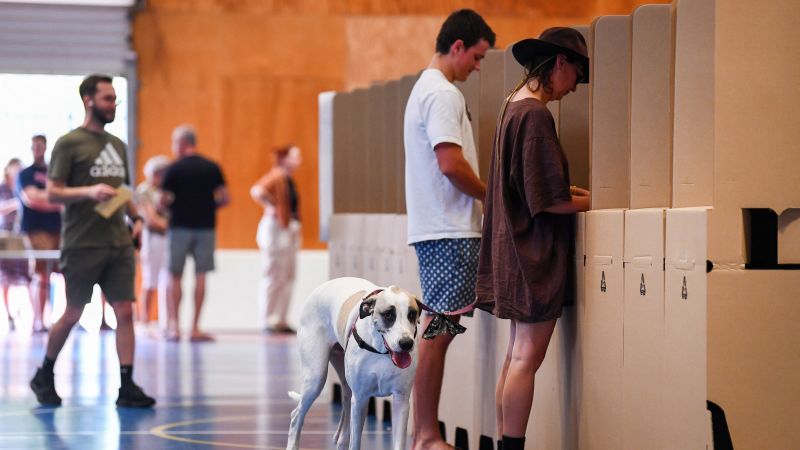With a two-letter word, Australians have struck down the first attempt at constitutional change in 24 years, major media outlets reported, a move experts say will inflict lasting damage on First Nations people and suspend any hopes of modernizing the nation’s founding document.
Early results from the Australian Electoral Commission (AEC) suggested that most of the country’s 17.6 million registered voters had written No on their ballots, and CNN affiliates 9 News, Sky News and SBS all projected no path forward for the Yes campaign.
The proposal, to recognize Indigenous people in the constitution and create an Indigenous body to advise government on policies that affect them, needed a majority nationally and in four of six states to pass.



This is the best summary I could come up with:
Supporters of the Yes vote had hailed it as an opportunity to accept the outreached hand of First Nations people and to work with them to solve problems in their most remote communities – higher rates of suicide, domestic violence, children in out-of-home care and incarceration.
Constitutional experts, Australians of the Year, eminent retired judges, companies large and small, universities, sporting legends, netballers, footballers, reality stars and Hollywood actors flagged their endorsement.
Aussie music legend John Farnham gifted a song considered to be the unofficial Australian anthem to a Yes advertisement with a stirring message of national unity.
Kevin Argus, a marketing expert from Royal Melbourne Institute of Technology (RMIT), told CNN the Yes campaign was a “case study in how not to message change on matters of social importance.”
Argus said only the No campaign had used simple messaging, maximized the reach of personal profiles, and acted decisively to combat challenges to their arguments with clear and repeatable slogans.
Maree Teesson, director of the Matilda Center for Research in Mental Health and Substance Use at the University of Sydney, told CNN the Voice to Parliament had offered self-determination to Indigenous communities, an ability to have a say over what happens in their lives.
The original article contains 945 words, the summary contains 204 words. Saved 78%. I’m a bot and I’m open source!